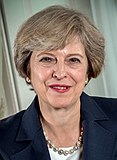| |||||||||||||||||||||||||||||||||||||||||||||||||||||||||||||||||||||||||||||||||||||||||
33 out of 36 metropolitan boroughs, 47 out of 55 unitary authorities, 168 out of 192 district councils, all 11 Northern Irish councils and 6 directly elected mayors | |||||||||||||||||||||||||||||||||||||||||||||||||||||||||||||||||||||||||||||||||||||||||
|---|---|---|---|---|---|---|---|---|---|---|---|---|---|---|---|---|---|---|---|---|---|---|---|---|---|---|---|---|---|---|---|---|---|---|---|---|---|---|---|---|---|---|---|---|---|---|---|---|---|---|---|---|---|---|---|---|---|---|---|---|---|---|---|---|---|---|---|---|---|---|---|---|---|---|---|---|---|---|---|---|---|---|---|---|---|---|---|---|---|
| |||||||||||||||||||||||||||||||||||||||||||||||||||||||||||||||||||||||||||||||||||||||||
 Map showing council control in England and largest parties by council in Northern Ireland following the election. Areas of England in pale cream did not hold an election, those in light grey are other parts of the United Kingdom which also did not hold elections. Black indicates a council in no overall control; all councils in Northern Ireland are in no overall control. | |||||||||||||||||||||||||||||||||||||||||||||||||||||||||||||||||||||||||||||||||||||||||
 Map showing the party with the most votes by ward. | |||||||||||||||||||||||||||||||||||||||||||||||||||||||||||||||||||||||||||||||||||||||||
The 2019 United Kingdom local elections took place on Thursday 2 May 2019, with 248 English local councils, six directly elected mayors in England, and all 11 local councils in Northern Ireland being contested.[3]
A total of 8,886 councillors were elected: terms were up for 8,861 seats, but eight elections for a total of 14 seats were postponed due to the death of a candidate;[4][5] there were also casual vacancies to be filled: 38 in England (including on nine councils with no other elections) and one on Dundee City Council in Scotland.[6]
With the exception of areas whose electoral cycle has temporarily changed (due to a boundary review) or permanently changed, or that have been reorganised, the seats up for election in England were last contested in the 2015 local elections, on the same day as the general election of that year. The seats in Northern Ireland were last regularly contested in 2014.
The biggest winners were the Liberal Democrats, who gained 704 seats to make a total of 1,351 councillors. The biggest losers were the Conservative Party down 1,333 from their previous total to 3,561 seats. Labour also lost seats, down by 84 to 2,021 seats. The Green Party gained 194 seats for a total of 265 seats. UKIP lost 145 seats, having only 31 councillors elected.
- ^ Cite error: The named reference
BBC-NatProjection2019was invoked but never defined (see the help page). - ^ "Local Election Results 2015 - BBC News". bbc.co.uk.
- ^ "Local elections: Where are the polls and how do I vote?". BBC News. May 2019. Retrieved 1 May 2019.
- ^ "The Leith Police dismisseth us | LocalCouncils.co.uk". Retrieved 23 April 2019.
- ^ "Quit the Elder | LocalCouncils.co.uk". Retrieved 23 April 2019.
- ^ "By-elections". Open Council Data. Retrieved 14 April 2019.
Cite error: There are <ref group=n> tags on this page, but the references will not show without a {{reflist|group=n}} template (see the help page).





